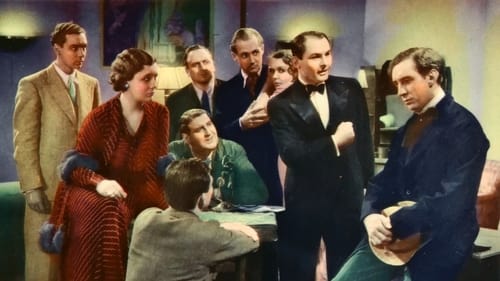
Jan Kiepura
出生 : 1902-05-16, Sosnowiec, Poland, Russian Empire [now Sosnowiec, Slaskie, Poland]
死亡 : 1966-08-15
略歴
From Wikipedia
Jan Wiktor Kiepura (May 16, 1902 – August 15, 1966) was an acclaimed Polish singer (tenor) and actor.
In 1926, Jan Kiepura left Poland for an international career in Germany, Hungary, France, and England. When he returned to Poland, with the money he had earned from his performances, he built the well-known hotel Patria in the Polish border town of Krynica-Zdrój, which cost him about US$3 million. Some Polish movies were made there. Kiepura played in twelve Polish musicals, including O czym się nie myśli (1926), Die Singende Stadt (Neapol, śpiewające miasto) (1930), Tout Pour L'amour (Zdobyć cię muszę) (1933), and Mon coeur t'appelle (1934).
He signed contracts with Convert Garden in London, Opéra Comique in Paris and National Opera in Berlin. Kiepura also started a film career, working with Berlin's UFA and then with the Motion Picture Industry in Hollywood. He played in many films, of which the most famous are: The Singing City, The Song of Night, Ich liebe alle Frauen, The Charm of La Boheme, Das Land des Lächelns.

Himself (archive footage)
The newsreel series Jornal Português (1938-1951) was produced for the Secretariat of National Propaganda (SPN/SNI) by the "Portuguese Newsreel Society" (SPAC), under the technical supervision of António Lopes Ribeiro. It was conceived and employed as part of the propaganda machinery of Salazar's regime. Screened in cinema theatres prior to the main feature film, each issue of Jornal had approximately ten minutes in length and covered a variety of official government acts, national political news, major sports events and other assorted social and cultural affairs. Jornal Português is not only an indispensable document for the history of Estado Novo's propaganda, but also an unparalleled audiovisual archive of 1940s Portugal.

Sou Bawana Pantschur, Prinz von Javora

René Lambertin
A group of struggling artists, poets, and musicians struggle to survive in squalor without giving up their artistic ideals.

Jan Kovalski
A prima donna hires a man to pretend to be her lover so as to protect her from an unwelcome suitor. Unbeknownst to her, he is a tenor in disguise.

A popular stage tenor can't stay away from his female admirers until his wife threatens to divorce him.

René Lambertain
René and his two artist friends lead a meager but careless life in a Parisian small apartment, their main worry being to avoid the housekeeper. Whenever they get some money they call more friends in and celebrate. This is how he meets beautiful but fragile Denise, who wants to be a singer as himself, and they fall in love. Yet when she finds out her real condition she takes a drastic decision which will determine their fates. La Bohème arias, and more.

Toni Kowalski
An ordinary Viennese taxi driver, Toni Kowalski, wanders into a diner, where a singing competition is taking place, and decides to take part in it. He is recognized as a maverick, the owner of an amazing voice, and is awarded the victory in the competition. Toni is patronized by an influential socialite.

Antonio Belizza
After being introduced to the world of opera, a fisherman (Jan Kiepura) falls for a woman (Swarthout) whose guardian is a noted composer (Philip Merivale). They met when the fisherman evaded the police by seeking refuge in the village church. While there, they are each captivated by hearing the other singing Mass. The beautiful woman falls in love with the fisherman with the wonderful voice.

Jean Morena / Eugène
Jean Morena, famous operatic tenor, is determined to change his engagements for some freedom after the performance. So his manager has the idea of contracting Eugène, a grocery worker who looks just like him and is willing to become a singer, to take his place. Destiny will make them change places also in romantic business.

Jan Morena & Edi Jaworski
Famous 1930's tenor Jan Kiepura doubles as a singing shop-assistant who stands in for a famous but lazy singer, mixing up each others love-lives in the process.

Mario Delmonte
Musical comedy. An opera singer falls for a stowaway on the way to Monte Carlo

Mario Delmonti
Director Rosé and his opera company travel to Monte Carlo where they expect an engagément to perform at the opera house. During the boat trip Mario, the cheerful tenor, meets a girl hidden in his cabin. He helps her singing for her passage and soon Nicole is adopted by the whole troupe. Then at Monte Carlo the opera director has no intention to sign them. But he has an eye for beautiful women, so Nicole will try to persuade him to reconsider the offer.

Riccardo Gatti
In this opera-oriented musical, Riccardo Gatti, an Italian young tenor in Venice, meets a young woman who sneaks into the opera house to try and get her fiancé hired as the orchestra's pianist.

Mario Delmonti
An opera company tries to get an engagement.

Ricardo Gatti
A famous tenor manages to charm away a lovely young lady who was just about to be married to the opera director.

Riccardo Gatti
During a concert tour, famous tenor Riccardo Gatti meets Lixie at an Aida rehearsal and takes her for a ballet dancer. She is in fact trying to get a position for her boyfriend, so she accepts Gatti's date for supper. When she runs away he publishes a newspaper ad offering to give a concert anywhere she chooses if she shows up. She chooses a swimming pool hoping to discourage him, but he accepts.

Enrico Ferraro
Opera singer Enrico Ferraro, tired of his too many engagements, jumps off the train escaping from his manager and changes to another going to the Riviera. He makes a friend and stops at a village, where (it seems) he can at last have some well deserved holidays, with the added interest of meeting a beautiful girl in the surroundings.

Enrico Ferraro
An Italian operatic tenor is dominated by his female business manager.

Enrico Ferraro
He was known as Anatole Litvak during his Hollywood directorial career, but he was still Anatole Litwak when he helmed the German musical Das Lied Einer Nacht (The Song of Night). Famed Polish tenor Jan Kiepura stars as famed Italian tenor Ferraro. Escaping from his tyrannical manager, Ferraro switches identities with a young tourist (Fritz Schulz) and goes off on an unscheduled Swiss holiday. Still travelling incognito, our hero falls in love with a winsome mountain girl (Magda Schneider). Alas, both his romance -- and his freedom -- are placed in jeopardy when it turns out that the charming young fellow with whom Ferraro traded identities was actually a notorious swindler. Anatole Litvak also directed the English-language version of Das Lied Einer Nacht, Be Mine Tonight

Giovanni Cavallone
A tourist guide in Naples is taken on by an English woman impressed by his singing, and who regards him as her protege.

Giovanni Cavallone
A tourist guide in Naples is taken on by a Viennese woman impressed by his singing, and who regards him as her protege. This film was released as a German version and English Version known as "The City of Song". Brigitte Helm once portrays a beautiful femme fatale who displays her affection and lust for her tourist guide which is paralleled with the main bodied theme of the early romanticist songs played throughout.




